The latest on COVID-19
As we monitor the COVID-19 situation, we are taking active steps to ensure the safety and well-being of customers, Dashers and the local businesses and communities impacted.

Mask Policy
With public health guidance changing, we have updated our policies. As of June 1, 2022, Dashers, customers, and merchants are no longer required to wear a face covering while using DoorDash or Caviar unless required by local public health, restaurant, or building guidelines.
We also understand that everyone is different and some people may choose to wear a mask for personal or health reasons. As such, we expect all members of our community to continue to treat others with respect.
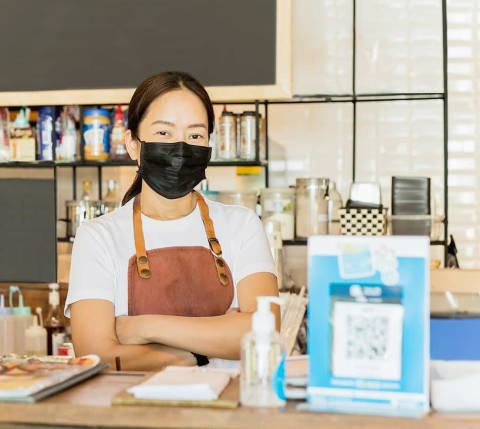
For Merchants
Providing access to critical tools and resources
We’re supporting Merchants around the country through small business grants, discounted equipment and supplies — including PPE and better access to PPP loans. We’re also providing guidance on food safety and no-contact handoffs at order pickup.
For Dashers
Supporting Dashers in prevention & recovery
Since the COVID-19 pandemic began, we have shipped more than 5.8 million sets of free hand sanitizer and masks to Dashers and provided guidance to help Dashers stay safe and healthy.
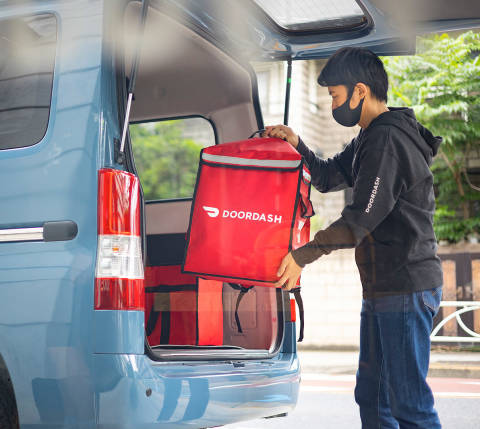
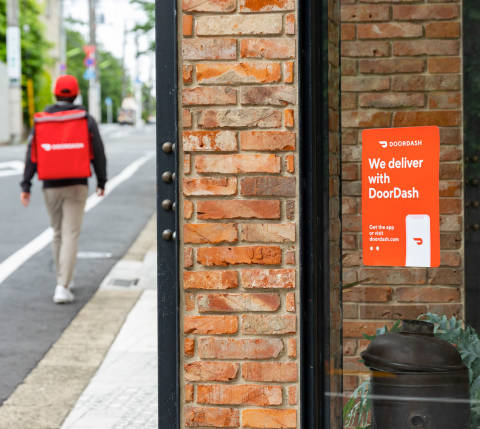
For Customers
Defaulting to no-contact deliveries
We introduced an update to DoorDash on the web, iOS, and Android that makes no-contact delivery the new default setting for orders. At checkout, customers will see “Leave it at my door” as the default drop-off option and can leave additional instructions, such as apartment number or a specific location, to help the Dasher complete the delivery. Customers will be reminded upon order arrival to wear a mask if they do need to meet their Dasher in-person to receive their delivery.
How we’re supporting communities
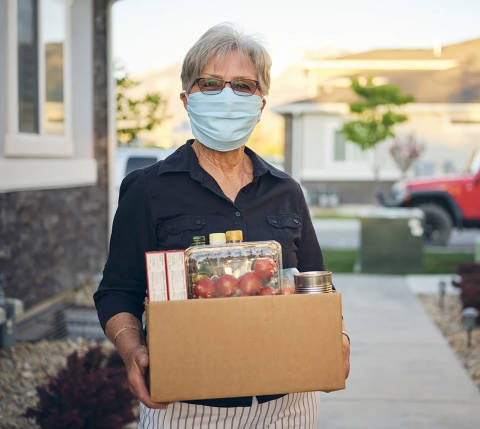
Delivering vital food and supplies to vulnerable community members
Through Project DASH and with the help of our Dasher community, we are grateful to be able to empower community organizations — such as food banks, food pantries, schools, and senior centers — to increase access in their communities. Project DASH leverages the DoorDash Drive On-Demand platform to enable government and nonprofit partners with last-mile delivery capabilities.
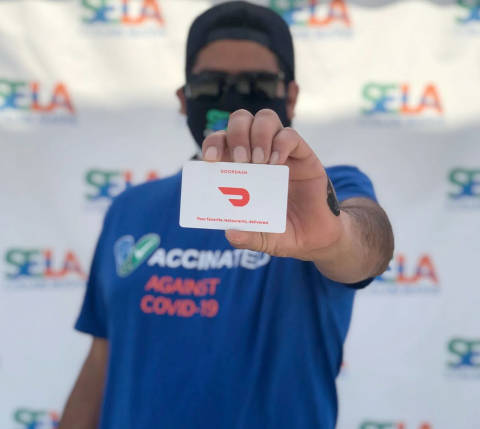
Providing community credits or DoorDash gift cards to non-profits
We are excited to announce DoorDash Community Credits, which provides awards of DoorDash gift cards to nonprofits. We know that having access to meals, essentials, and other items can make a difference for these groups as they work to create greater access and equity for their communities.
Protecting yourself and others
The Center of Disease Control has provided updated recommendations to protect yourself and others. See the latest from the CDC here.